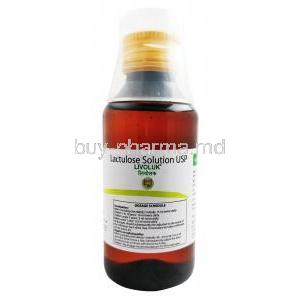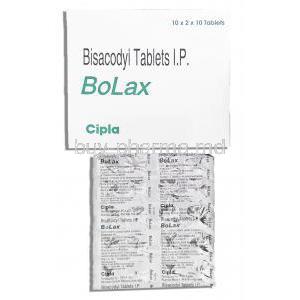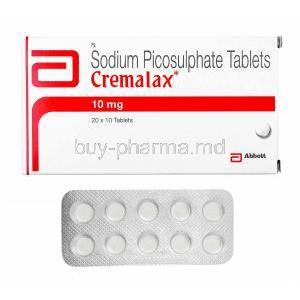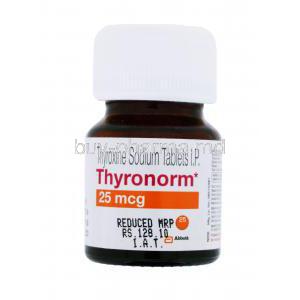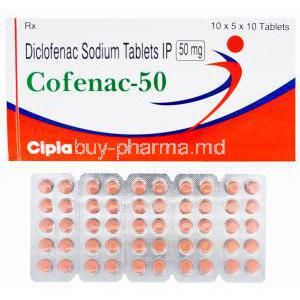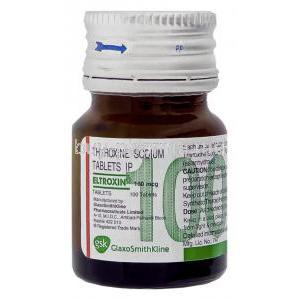Introduction
Overview of Dioctyl Sulfo Succinate
Dioctyl Sulfo Succinate, commonly known as docusate sodium, is a stool softener used primarily to relieve constipation. It works by increasing the amount of water the stool absorbs in the gut, making the stool softer and easier to pass. This medication is particularly useful for individuals who should avoid straining during bowel movements, such as those recovering from surgery or those with hemorrhoids.
Widely regarded for its gentle action, Dioctyl Sulfo Succinate is available over-the-counter and by prescription in various formulations, including tablets, capsules, liquids, and suppositories. Its effectiveness and mild side effect profile have made it a staple in managing constipation.
History and Development
Dioctyl Sulfo Succinate was first introduced in the mid-20th century as an innovative solution for constipation relief. Initially developed for hospital settings, it quickly gained popularity for its efficacy and safety. The formulation evolved over the years, leading to a variety of delivery methods that cater to different patient needs. Its widespread use in both medical and over-the-counter settings reflects its trusted reputation.
Importance in Medical and Pharmaceutical Applications
In medical practice, Dioctyl Sulfo Succinate is crucial for postoperative care and in conditions requiring minimal straining during defecation, such as cardiovascular diseases and hemorrhoids. Its use extends to chronic constipation management, especially in patients undergoing opioid therapy or those with limited mobility. Furthermore, its mild action makes it suitable for pediatric and geriatric populations.
Regulatory Status and Approval
Dioctyl Sulfo Succinate is approved by regulatory authorities such as the FDA and EMA for the treatment of constipation. It is categorized as a stool softener and is available both as an over-the-counter product and a prescription medication. Its safety and efficacy profiles are well-documented, ensuring its continued approval and use worldwide.
Composition of Dioctyl Sulfo Succinate
Chemical Structure and Properties
Dioctyl Sulfo Succinate is chemically known as sodium dioctyl sulfosuccinate. It belongs to the class of surfactants, which reduce surface tension, allowing water and lipids to mix more easily. This property enhances water penetration into the stool, thus softening it. Its amphiphilic nature contributes to its efficacy as a stool softener.
Available Forms
- Tablets: Convenient for adults and older children.
- Liquid: Suitable for patients with difficulty swallowing pills.
- Capsules: Easy-to-swallow option for quick relief.
- Suppositories: Effective for faster action via rectal administration.
Inactive Ingredients and Excipients
In addition to the active ingredient, Dioctyl Sulfo Succinate formulations may contain inactive ingredients such as lactose, microcrystalline cellulose, and magnesium stearate. These excipients stabilize the product and aid in its delivery and absorption. Patients with allergies or sensitivities should check the product label for specific excipient details.
How Dioctyl Sulfo Succinate Works
Mechanism of Action
Dioctyl Sulfo Succinate acts as a surfactant, reducing surface tension on the stool. This facilitates the mixing of aqueous and fatty substances, increasing water absorption into the stool. Consequently, the stool becomes softer, promoting easier bowel movements without straining.
Onset of Action and Duration of Effect
Typically, Dioctyl Sulfo Succinate takes 12 to 72 hours to produce a bowel movement. Its duration of effect depends on the individual’s digestive system and the dosage administered. For faster relief, rectal administration via suppositories may be used, which generally works within 15 to 60 minutes.
Effects on the Gastrointestinal System
The stool-softening effect of Dioctyl Sulfo Succinate minimizes discomfort associated with hard stools, reducing the risk of hemorrhoids and anal fissures. It is non-stimulant, ensuring gentle action on the intestines without causing dependency or cramping.
Uses of Dioctyl Sulfo Succinate
Primary Indications
- Treatment of Constipation: Safe and effective for occasional and chronic constipation.
- Stool Softener in Postoperative and Hemorrhoidal Conditions: Prevents straining and minimizes pain during defecation.
Off-Label Uses
- Use in Chronic Constipation Management: Often prescribed for patients on opioid therapy.
- Adjunct in Colonoscopy Preparation: Helps clear the bowel without harsh stimulants.
- Use in Pediatric Constipation: Gentle enough for children with dosage adjustments.
Dosage and Administration
Recommended Dosage for Adults
Typical adult dosage ranges from 50 to 300 mg per day, divided into one or two doses. The dosage may be adjusted based on the severity of constipation and individual patient response.
Dosage for Children and Adolescents
For children aged 2 to 12, the dosage is usually 50 to 150 mg per day. Adolescents may take adult dosages under medical supervision. Pediatric use requires careful monitoring to avoid electrolyte imbalance.
Special Dosage Considerations for Elderly
Older adults are more susceptible to dehydration and electrolyte imbalance. Lower doses are recommended, with close monitoring for adverse effects, particularly in those with renal or cardiovascular conditions.
Administration Guidelines
- Oral Administration: Take with a full glass of water to enhance efficacy.
- Rectal Administration: For rapid action, insert suppositories directly into the rectum.
Duration of Use and Treatment Course
Short-term use is recommended to avoid dependency. If constipation persists beyond seven days, medical evaluation is advised.
Side Effects of Dioctyl Sulfo Succinate
Common Side Effects
- Abdominal Cramping
- Diarrhea
- Nausea
Serious Side Effects
- Electrolyte Imbalance
- Allergic Reactions
Long-term Side Effects and Risks
Prolonged use may lead to dependency, electrolyte disturbances, and impaired bowel function. Regular medical supervision is recommended for chronic users.
Warnings and Precautions
- Risks of Prolonged Use: Dependency and altered bowel function.
- Contraindications: Gastrointestinal obstruction, acute abdominal pain of unknown origin.
- Careful Administration: Required for patients with renal impairment and those on other laxatives.
Special Populations
Administration to Elderly
Lower doses are recommended with close monitoring for dehydration and electrolyte imbalance.
Administration to Pregnant Women and Nursing Mothers
Considered safe during pregnancy; however, it should be used under medical advice. Minimal risk to breastfeeding infants.
Administration to Children
Age-specific dosages are necessary. Safety and efficacy are established for short-term use.
Drug Interactions
Interaction with Other Laxatives
Dioctyl Sulfo Succinate, when used concurrently with other laxatives, can potentiate the laxative effect, leading to severe diarrhea and dehydration. This synergistic action may cause a rapid loss of electrolytes, especially potassium, resulting in hypokalemia. Combining stimulant laxatives with Dioctyl Sulfo Succinate is particularly risky as it can excessively stimulate bowel movements, exacerbating abdominal cramping and discomfort.
It is recommended to avoid using multiple laxatives simultaneously unless prescribed by a healthcare professional. If necessary, stagger the administration times to minimize adverse interactions. Caution is advised in elderly patients who are more susceptible to electrolyte disturbances.
Interaction with Diuretics and Other Electrolyte-altering Drugs
Concurrent use of Dioctyl Sulfo Succinate with diuretics (such as furosemide or hydrochlorothiazide) or other electrolyte-altering drugs can amplify the risk of electrolyte imbalance. This is due to the enhanced excretion of essential ions like potassium and sodium, increasing the likelihood of hypokalemia and hyponatremia.
- Potassium-sparing diuretics may also cause hyperkalemia when combined with Dioctyl Sulfo Succinate.
- Electrolyte monitoring is essential in patients on diuretics to avoid severe complications such as cardiac arrhythmias.
Medical practitioners should exercise caution and may need to adjust dosages accordingly to mitigate these risks.
Interaction with Prescription Medications and Supplements
Dioctyl Sulfo Succinate may interfere with the absorption of certain prescription medications and dietary supplements, reducing their therapeutic efficacy. This is particularly true for:
- Fat-soluble Vitamins: Vitamins A, D, E, and K may have decreased absorption due to the stool-softening mechanism of the drug.
- Anticoagulants: The reduced absorption of Vitamin K can potentiate the effects of anticoagulants like warfarin, increasing the risk of bleeding.
- Mineral Supplements: Electrolyte imbalances can occur with calcium, magnesium, and potassium supplements, necessitating close monitoring.
Patients should consult healthcare professionals before combining Dioctyl Sulfo Succinate with any prescription medication or supplement to avoid adverse interactions and maintain optimal therapeutic effects.
Food and Alcohol Interactions
Food does not significantly impact the effectiveness of Dioctyl Sulfo Succinate; however, certain dietary habits can influence its action. High-fiber foods can enhance stool softening, while low-fiber diets may diminish its effectiveness.
- Alcohol: Concurrent alcohol consumption may exacerbate dehydration and electrolyte imbalance, leading to increased gastrointestinal distress.
- Caffeine: Caffeinated beverages may further stimulate bowel movements, leading to diarrhea or cramping.
To optimize therapeutic outcomes, patients are advised to maintain adequate hydration and a balanced diet while using Dioctyl Sulfo Succinate. Limiting alcohol and caffeine intake can also minimize gastrointestinal discomfort.
Overdosage and Emergency Management
Symptoms of Overdosage
An overdose of Dioctyl Sulfo Succinate can lead to significant gastrointestinal and systemic disturbances. Symptoms typically include:
- Severe Diarrhea: Rapid onset, leading to excessive fluid loss and dehydration.
- Electrolyte Imbalance and Dehydration: Symptoms may include dizziness, confusion, muscle weakness, and irregular heartbeats due to potassium and sodium depletion.
- Nausea and Vomiting: Resulting from gastrointestinal irritation and electrolyte disturbances.
First Aid and Emergency Measures
In the event of an overdose, immediate first aid is crucial:
- Discontinue the use of Dioctyl Sulfo Succinate immediately.
- Encourage the patient to drink plenty of fluids to counter dehydration.
- Oral rehydration solutions are recommended to restore electrolyte balance.
- Seek medical attention promptly, especially if severe symptoms such as confusion, muscle weakness, or heart palpitations occur.
Medical Treatment and Hospitalization
Hospitalization may be required in severe cases of overdosage. Medical interventions include:
- Intravenous Fluid Therapy: To replenish lost fluids and electrolytes.
- Electrolyte Monitoring: Regular blood tests to assess sodium, potassium, and other electrolyte levels.
- Symptomatic Treatment: Anti-emetics for nausea and medications for cardiac irregularities if necessary.
- Gastrointestinal Decontamination: In rare cases, activated charcoal may be administered to reduce absorption.
Close monitoring and supportive care are crucial for a full recovery. Early medical intervention minimizes complications and accelerates the restoration of normal physiological functions.
Storage and Handling Precautions
Proper Storage Conditions
To maintain the efficacy and stability of Dioctyl Sulfo Succinate, it should be stored under optimal conditions:
- Temperature: Store at room temperature between 20°C and 25°C (68°F and 77°F). Avoid exposure to extreme temperatures.
- Humidity: Keep the product in a dry place to prevent moisture absorption, which can compromise its integrity.
Shelf Life and Stability
Dioctyl Sulfo Succinate has a shelf life of approximately 24 to 36 months, depending on the manufacturer and storage conditions. Always check the expiration date before use. Do not use expired medication, as it may lose potency or cause adverse effects.
Handling Precautions
Proper handling of Dioctyl Sulfo Succinate is essential for safety:
- Avoid touching the tablets or capsules with wet hands to prevent degradation.
- Keep the container tightly closed to protect from moisture and contamination.
Disposal of Unused Medication
Unused or expired Dioctyl Sulfo Succinate should be disposed of safely:
- Do not flush down the toilet or pour into drains.
- Utilize local drug take-back programs or follow community guidelines for medication disposal.
Safety Measures for Children and Pets
Store Dioctyl Sulfo Succinate out of reach of children and pets. Accidental ingestion can cause serious adverse effects, necessitating immediate medical intervention.
Summary and Conclusion
Recap of Uses and Benefits
Dioctyl Sulfo Succinate is an effective stool softener widely used for constipation relief and postoperative care. Its gentle action on the gastrointestinal tract makes it suitable for a broad range of patients, including children and the elderly. The medication's ability to soften stools reduces discomfort and prevents straining, promoting overall digestive health.
Potential Risks and Side Effects
While generally safe, Dioctyl Sulfo Succinate may cause side effects, including abdominal cramping, diarrhea, and electrolyte imbalances. It is crucial to adhere to recommended dosages and be mindful of potential drug interactions.
Final Recommendations for Safe Use
For safe and effective use of Dioctyl Sulfo Succinate:
- Consult with a healthcare professional before use, especially if taking other medications.
- Adhere to the prescribed dosage and avoid prolonged use to prevent dependency.
- Monitor for side effects and discontinue use if severe symptoms occur.
Dioctyl Sulfo Succinate remains a valuable therapeutic agent when used responsibly and under medical supervision.


